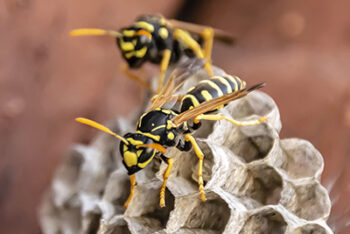Leave your information below and we’ll be in touch with a FREE quote!
"*" indicates required fields
*During normal business hours. After hours calls will be returned the next business day.
Menu
Leave your information below and we’ll be in touch with a FREE quote!
"*" indicates required fields
*During normal business hours. After hours calls will be returned the next business day.

 For homeowners who find themselves worrying about wasps buzzing around their property or dealing with a nest issue, getting to know these stinging insects can bring some peace of mind. Whether you’re currently dealing with an infestation or want to prevent them, here are 5 must-know facts about wasps in Long Island.
For homeowners who find themselves worrying about wasps buzzing around their property or dealing with a nest issue, getting to know these stinging insects can bring some peace of mind. Whether you’re currently dealing with an infestation or want to prevent them, here are 5 must-know facts about wasps in Long Island.